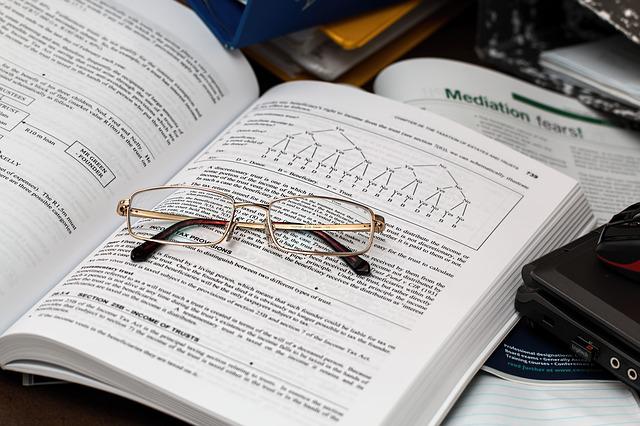Section 80EEA | Affordable dwelling | Pre-requisites | Deduction Claim | Benefits | First-Time Homebuyer | Requirements | EE vs EEA | 80EEA & 24 | 80 EEA Income Tax Act
The 80EEA provision in India provides first-time homebuyers with an additional income tax section relaxation facility. Under Section 80EEA of the Income Tax Act, any first-time home buyer in India is eligible for an extra tax deduction of up to Rs. 1.5 lakh.
Buyers can receive benefits and deductions under two Sections, namely 80EE and 80EEA deductions when purchasing a house that is affordable and requires the help of a home loan. This article will cover only Section 80EEA Income Tax Act.
The Pradhan Mantri Awas Yojana (PMAY) flagship program, “Housing for All by 2022,” was introduced, one of many measures implemented to promote property ownership. The government implemented the 80EEA deduction in 2019 to support such projects, allowing the government to prolong its assistance for home loans submitted between April 1, 2019, and March 31, 2021. More and more people can realize their dream of home ownership because of Section 80EEA.
Have a look at AP stamps and registration and know the details.

Describe Section 80EEA.
If a first-time home buyer in India purchases an “affordable property,” they are eligible for a deduction under Section 80EEA of up to Rs. 1.50 lakhs. This deduction exceeds Section 24’s initial and fundamental deduction (b). The total annual tax incentive approaches Rs. 3.5 lakhs. The buyer cannot own any other properties at the time of purchase. However, since only “affordable property” is eligible, it is essential to define an affordable property.
What is an Affordable Dwelling Unit?
On September 1st, the 80EEA Income Tax Act was enacted. Before it, “affordable properties” were only up to $50,000 in value. The revised concept of “affordable housing” under Section 80EEA of the Income Tax Law defines real estate valued at Rs. 45 lakhs. The carpeting impacts how affordable.
To qualify for the Section 80EEA deduction, a property must not be larger than 60 square meters or 645 square feet. However, properties in other cities must not be larger than 90 square meters or 968 square feet to qualify for the same Section advantages.
What Prerequisites Must be Met to Receive the Benefit?
You must meet a few requirements to qualify for the tax relief provided by Section 80IA of the Income Tax Act. The list is as follows:
- A loan from a financial institution or housing finance firm is required to buy a residential property.
- The person must not be claiming the deduction provided by Section 80EE.
- The residential property’s stamp duty must be 45 lakhs or less.
- The buyer must be making their first purchase. They will be ruled ineligible for the Section 80 EEA deduction if they have any homes registered in their name.
- You can claim the house loan between April 1, 2019, and March 31, 2021.
- A residential property’s carpet area must be more than 645 square feet or 60 meters in urban areas.
- In other cities, the residential plot’s carpet area cannot exceed 968 square feet or 90 meters.
Under Income Tax Act Section 80EEA, Who May Make a Deduction Claim?
The deduction is only available to those who are purchasing their first house. However, one must remember that to qualify for a home loan, the applicant cannot currently own any residential real estate.
How to Obtain Section 80EEA Benefits When Purchasing a Home in FY23?
The income tax benefit under Section 80EEA, which allows homebuyers (who do not own any houses at the time of home loan sanction) to claim income tax exemption on up to 1.50 lakh of home loan interest payments in one’s home loan EMI, has been extended by Union Finance Minister Nirmala Sitharaman until 31st March 2022. However, Budget 2022 did not extend this incentive, which implies that new homeowners will be required to pay higher income taxes beginning with the next fiscal year.

However, suppose a taxpayer is considering purchasing a property in the current fiscal year. In that case, they may still be eligible for this income tax break when filing their income tax return the following year. In addition, a home buyer must obtain loan approval within the current fiscal year to close on a purchase during the next fiscal year.
Mumbai-based tax and investment specialist Balwant Jain talked about how a home buyer can still benefit from the income tax benefit provided by Section 80EEA of the Income Tax Act. However, a taxpayer still has the chance to benefit from the income tax exemption on 1,50,000 in home loan interest payments in one fiscal year if they are thinking about buying their dream home in the upcoming fiscal year.
Other Benefits
Regarding how a taxpayer repays a mortgage, When the benefit expires in the current fiscal year, EMI can still claim it for the home loan duration, according to Balwant Jain, who added that “the benefit is still available till 31st March 2022.” Therefore, if a taxpayer intends to purchase their dream home in the upcoming fiscal year, they must apply for a home loan immediately and receive a sanction letter before the end of the current fiscal year or before March 31, 2022.
Even if someone purchases their property later but within the specified validity term of the authorized home loan, they are still eligible for the income tax advantage under Section 80EEA if they have a home loan sanction letter within the benefit’s allotted time frame.
What is the Deduction Amount?
A deduction on the principal amount up to Rs. 1,50,000 is allowed under Income Tax Act Section 80 EEA. This qualifies as more than the Rs. 2 lakh allowed under Section 24. (b). As a result, a taxpayer who satisfies all of the requirements of Section 80EEA of the Income Tax Act may benefit from a total deduction of Rs. 3.5 lakh.
Who is Eligible to be a First-Time Homebuyer?
When they apply for a loan, first-time house purchasers do not currently own any real estate. Therefore, even if the concerned person’s parents own property, every household headed by a working adult can be considered separate.
Which Cities Qualify as Metropolitan Areas Under Section 80EEA Income Tax Act?
Bangalore, Delhi, Chennai, Faridabad, Greater Noida, Ghaziabad, Hyderabad, Gurugram, Kolkata, Noida, and Mumbai are metropolitan areas that qualify for tax deductions.
Eligibility Requirements.
Only individuals may use the deduction provided by this section. However, other taxpayers are not eligible for this deduction. Therefore, you are not eligible to claim under this section whether you are a HUF, AOP, partnership firm, company, or any other type of taxpayer.

NRIs Qualify for the Section 80EEA Deduction, or do they?
The statute does not specify whether one must be an Indian resident. As a result, non-residents can also claim deductions under Section 80EEA of the Income Tax Act, according to tax experts.
Can the Deductions under Section 80 EEA be made in the event of a property that is not self-occupied?
Nothing in the Section 80EEA deduction act specifies whether the property must be self-occupied. Therefore, purchasers who reside in rental housing may also claim the tax benefit.
What kinds of property are protected by the 80EEA?
Buyers of residential real estate are eligible to apply for the benefit. Additionally, it is stated that you must take the loan out to purchase the property and not for maintenance, repair, or other purposes.
Can co-owners claim the Section 80EEA deductions?
Each co-owner or joint borrower may claim a deduction of Rs. 1.5 Lakh under Section 80 EEA in the matter at hand. Each of them must, however, satisfy all the requirements.
How many home buyers maximize their deductions under Section 80EEA?
Let’s examine how much of a person’s salary would be non-taxable today if he were to purchase his first home, given that Section 80EEA has been implemented to assist the middle-income group in owning a home through more financial support.
Can one claim the deduction under section 80EEA at a time?
You can still use section 80EEA to deduct expenses until the mortgage has been paid off.
What does the 80EEA deduction involve?
Only interest payments on house loans are eligible for deductions.
What is the maximum 80EEA deduction?
The annual deduction maximum is Rs 1.50 lakh.
EE vs. EEA.
First-time buyers must understand section 80EEA and Section 80EEE. Deductions under Section 80EEA cannot be claimed by anyone claiming deductions under Section 80EE. The law makes particular reference to this.
What Separates 80EE from 80EEA?
- Particulars
Article 80EE
Article 80EEA
- Property worth
Rs. 50 lakhs and up
Rs. 45 lakhs and above
Up to Rs 35 lakhs in loans
not defined
- Covered loan period: April 1, 2016, through March 31, 2017, April 1, 2019, through March 31, 2021
- Maximum discount: Rs 50,000 or Rs 1.50 lakh
- Lock-in duration: none
Difference between Sections 80EEA and 24.
Both Sections 80EEA and 24 are used to deduct expenses. There are, however, a few fundamental distinctions that must be made in this regard. Possession is unnecessary in the case of a section 80EEA deduction; once the interest payment process has begun, you may request an exception. However, you must have the property to claim the deduction under Section 24.
Only house loans from various banks and financial institutions are an option under 80EEA. Regarding section 24, however, borrowing money from friends and family is also permitted as long as all the necessary paperwork is in order. The amount of money at stake would be the main distinction between the two. The maximum deduction under 80EEA is $1,500,000, whereas the full deduction under 24 A is $2,000,000.
Related: Hardik Pandya New House
Relevant Information on the 80EEA Income Tax Act.

Although this deduction is technically accessible until March 2022, if you match the qualifying requirements, you may still be able to claim it at any time during the loan’s term. If you are the only earner in a family, you may be treated as a separate household under the PMAY rules and regulations. Furthermore, if you want to purchase a home independently and are financially independent but not married, you will be regarded as having a separate household.
As a result, you are now qualified to use the section 80EEA income tax act’s deductions for your first home acquisition. Under Section 80EEA of the Income Tax Act, a first-time house buyer is eligible for a tax break of up to Rs. 1.5 lakh. This new law stimulates the real estate market’s expansion by piquing investors’ first interest in purchasers.
You can also have a look at IGRS AP deed details.
